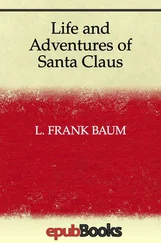Charles Dickens - Life And Adventures Of Martin Chuzzlewit
Здесь есть возможность читать онлайн «Charles Dickens - Life And Adventures Of Martin Chuzzlewit» весь текст электронной книги совершенно бесплатно (целиком полную версию без сокращений). В некоторых случаях можно слушать аудио, скачать через торрент в формате fb2 и присутствует краткое содержание. Жанр: Классическая проза, на английском языке. Описание произведения, (предисловие) а так же отзывы посетителей доступны на портале библиотеки ЛибКат.
- Название:Life And Adventures Of Martin Chuzzlewit
- Автор:
- Жанр:
- Год:неизвестен
- ISBN:нет данных
- Рейтинг книги:5 / 5. Голосов: 1
-
Избранное:Добавить в избранное
- Отзывы:
-
Ваша оценка:
- 100
- 1
- 2
- 3
- 4
- 5
Life And Adventures Of Martin Chuzzlewit: краткое содержание, описание и аннотация
Предлагаем к чтению аннотацию, описание, краткое содержание или предисловие (зависит от того, что написал сам автор книги «Life And Adventures Of Martin Chuzzlewit»). Если вы не нашли необходимую информацию о книге — напишите в комментариях, мы постараемся отыскать её.
Life And Adventures Of Martin Chuzzlewit — читать онлайн бесплатно полную книгу (весь текст) целиком
Ниже представлен текст книги, разбитый по страницам. Система сохранения места последней прочитанной страницы, позволяет с удобством читать онлайн бесплатно книгу «Life And Adventures Of Martin Chuzzlewit», без необходимости каждый раз заново искать на чём Вы остановились. Поставьте закладку, и сможете в любой момент перейти на страницу, на которой закончили чтение.
Интервал:
Закладка:
Mrs Hominy promptly rose, and proceeded to the door, whence she returned, after a minute's interval, with the two L. L. “s, whom she led, through the lane in the crowd, with all that stateliness of deportment which was so remarkably her own, up to the great Elijah Pogram. It was (as the shrill boy cried out in an ecstasy) quite the Last Scene from Coriolanus. One of the L. L. “s wore a brown wig of uncommon size. Sticking on the forehead of the other, by invisible means, was a massive cameo, in size and shape like the raspberry tart which is ordinarily sold for a penny, representing on its front the Capitol at Washington.
“Miss Toppit, and Miss Codger!” said Mrs Hominy.
“Codger's the lady so often mentioned in the English newspapers I should think, sir,” whispered Mark. “The oldest inhabitant as never remembers anything.”
“To be presented to a Pogram,” said Miss Codger, “by a Hominy, indeed, a thrilling moment is it in its impressiveness on what we call our feelings. But why we call them so, or why impressed they are, or if impressed they are at all, or if at all we are, or if there really is, oh gasping one! a Pogram or a Hominy, or any active principle to which we give those titles, is a topic, Spirit searching, light abandoned, much too vast to enter on, at this unlooked-for crisis.”
“Mind and matter,” said the lady in the wig, “glide swift into the vortex of immensity. Howls the sublime, and softly sleeps the calm Ideal, in the whispering chambers of Imagination. To hear it, sweet it is. But then, outlaughs the stern philosopher, and saith to the Grotesque, “What ho! arrest for me that Agency. Go, bring it here!” And so the vision fadeth.”
After this, they both took Mr Pogram by the hand, and pressed it to their lips, as a patriotic palm. That homage paid, the mother of the modern Gracchi called for chairs, and the three literary ladies went to work in earnest, to bring poor Pogram out, and make him show himself in all his brilliant colours.
How Pogram got out of his depth instantly, and how the three L. L. “s were never in theirs, is a piece of history not worth recording. Suffice it, that being all four out of their depths, and all unable to swim, they splashed up words in all directions, and floundered about famously. On the whole, it was considered to have been the severest mental exercise ever heard in the National Hotel. Tears stood in the shrill boy's eyes several times; and the whole company observed that their heads ached with the effort—as well they might.
When it at last became necessary to release Elijah Pogram from the corner, and the Committee saw him safely back again to the next room, they were fervent in their admiration.
“Which,” said Mr Buffum, “must have vent, or it will bust. Toe you, Mr Pogram, I am grateful. Toe-wards you, sir, I am inspired with lofty veneration, and with deep e-mo-tion. The sentiment Toe which I would propose to give ex-pression, sir, is this: “May you ever be as firm, sir, as your marble statter! May it ever be as great a terror Toe its ene-mies as you.”
There is some reason to suppose that it was rather terrible to its friends; being a statue of the Elevated or Goblin School, in which the Honourable Elijah Pogram was represented as in a very high wind, with his hair all standing on end, and his nostrils blown wide open. But Mr Pogram thanked his friend and countryman for the aspiration to which he had given utterance, and the Committee, after another solemn shaking of hands, retired to bed, except the Doctor; who immediately repaired to the newspaper-office, and there wrote a short poem suggested by the events of the evening, beginning with fourteen stars, and headed, “A Fragment. Suggested by witnessing the Honourable Elijah Pogram engaged in a philosophical disputation with three of Columbia's fairest daughters. By Doctor Ginery Dunkle. Of Troy.”
If Pogram was as glad to get to bed as Martin was, he must have been well rewarded for his labours. They started off again next day (Martin and Mark previously disposing of their goods to the storekeepers of whom they had purchased them, for anything they would bring), and were fellow travellers to within a short distance of New York. When Pogram was about to leave them he grew thoughtful, and after pondering for some time, took Martin aside.
“We air going to part, sir,” said Pogram.
“Pray don't distress yourself,” said Martin; “we must bear it.”
“It ain't that, sir,” returned Pogram, “not at all. But I should wish you to accept a copy of My oration.”
“Thank you,” said Martin, “you are very good. I shall be most happy.”
“It ain't quite that, sir, neither,” resumed Pogram; “air you bold enough to introduce a copy into your country?”
“Certainly,” said Martin. “Why not?”
“Its sentiments air strong, sir,” hinted Pogram, darkly.
“That makes no difference,” said Martin. “I'll take a dozen if you like.”
“No, sir,” retorted Pogram. “Not A dozen. That is more than I require. If you are content to run the hazard, sir, here is one for your Lord Chancellor,” producing it, “and one for Your principal Secretary of State. I should wish them to see it, sir, as expressing what my opinions air. That they may not plead ignorance at a future time. But don't get into danger, sir, on my account!”
“There is not the least danger, I assure you,” said Martin. So he put the pamphlets in his pocket, and they parted.
Mr Bevan had written in his letter that, at a certain time, which fell out happily just then, he would be at a certain hotel in the city, anxiously expecting to see them. To this place they repaired without a moment's delay. They had the satisfaction of finding him within; and of being received by their good friend, with his own warmth and heartiness.
“I am truly sorry and ashamed,” said Martin, “to have begged of you. But look at us. See what we are, and judge to what we are reduced!”
“So far from claiming to have done you any service,” returned the other, “I reproach myself with having been, unwittingly, the original cause of your misfortunes. I no more supposed you would go to Eden on such representations as you received; or, indeed, that you would do anything but be dispossessed, by the readiest means, of your idea that fortunes were so easily made here; than I thought of going to Eden myself.”
“The fact is, I closed with the thing in a mad and sanguine manner,” said Martin, “and the less said about it the better for me. Mark, here, hadn't a voice in the matter.”
“Well! but he hadn't a voice in any other matter, had he?” returned Mr Bevan; laughing with an air that showed his understanding of Mark and Martin too.
“Not a very powerful one, I am afraid,” said Martin with a blush. “But live and learn, Mr Bevan! Nearly die and learn; we learn the quicker.”
“Now,” said their friend, “about your plans. You mean to return home at once?”
“Oh, I think so,” returned Martin hastily, for he turned pale at the thought of any other suggestion. “That is your opinion too, I hope?”
“Unquestionably. For I don't know why you ever came here; though it's not such an unusual case, I am sorry to say, that we need go any farther into that. You don't know that the ship in which you came over with our friend General Fladdock, is in port, of course?”
“Indeed!” said Martin.
“Yes. And is advertised to sail to-morrow.”
This was tempting news, but tantalising too; for Martin knew that his getting any employment on board a ship of that class was hopeless. The money in his pocket would not pay one-fourth of the sum he had already borrowed, and if it had been enough for their passage-money, he could hardly have resolved to spend it. He explained this to Mr Bevan, and stated what their project was.
Читать дальшеИнтервал:
Закладка:
Похожие книги на «Life And Adventures Of Martin Chuzzlewit»
Представляем Вашему вниманию похожие книги на «Life And Adventures Of Martin Chuzzlewit» списком для выбора. Мы отобрали схожую по названию и смыслу литературу в надежде предоставить читателям больше вариантов отыскать новые, интересные, ещё непрочитанные произведения.
Обсуждение, отзывы о книге «Life And Adventures Of Martin Chuzzlewit» и просто собственные мнения читателей. Оставьте ваши комментарии, напишите, что Вы думаете о произведении, его смысле или главных героях. Укажите что конкретно понравилось, а что нет, и почему Вы так считаете.









